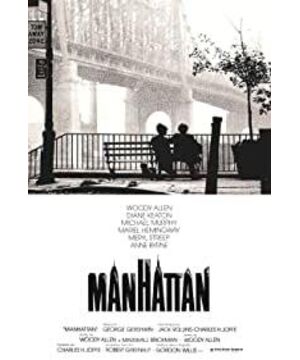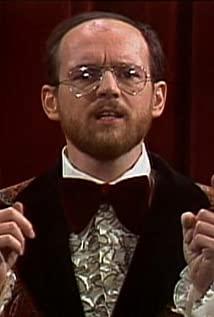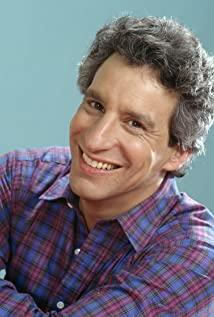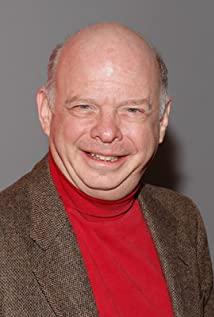There is no more boring text than writing love over and over again. The reason why the later stages of "Sex and the City" became worse and worse was that they fell into such a trap. Simply discussing sex is a very pleasant thing, but take off its packaging and pursue a so-called "true love", you will find that this thing is really the same, even worse than the emotional column on the bad street.
And Woody Allen is the person who is always interested in this kind of "boring" discussion. So in the past, I hardly watched the broken thoughts shot by this little old man. ——Until the sixth day of this year's National Day, because of the opportunity to watch an open-air movie in the garden bar on Yongfu Road, I met his "Manhattan" released in 1979.
The camera moves from high-rise buildings all the way to the chaotic streets of Manhattan, and Woody Allen walks slowly as a 40-year-old, hair-loss, divorced and frustrated writer Isaac. The girlfriend he's dating is 17-year-old Tracy, and he doesn't plan to run the relationship with his heart. Walking beside him is his friend Yell, who is having an extramarital affair with a female reporter, Mary, and at the same time is struggling to decide whether to leave his wife.
Black-and-white pictures, cliché plots, and overly intellectual dialogues, these elements that are destined to be boring, combine to create a wonderful spicy feeling. Woody Allen is too good at deconstructing and satirizing these neurotic "bourgeois" humans. For example, Isaac can easily pick up a series of names such as Cezanne, Jung, Bergman, Nabokov, etc., which seem to be profound and wise, but in fact these names are figurines of ignorance and emptiness. They've been discussing art, but they've never created art.
To paraphrase Woody Allen, "People who live in Manhattan, they don't care about themselves, they create unnecessary, neurotic problems. Because of this, they don't have to deal with the world's more difficult life and death problems. problem."
Like the derailed female reporter Mary of Yell, there is no doubt that she is charming. Intellectual rebellion, and an indescribable sense of youth. That's why Yell and Isaac fell one after another. But the beauty on the outside couldn't hide the emptiness in her heart. She always emphasized that she was a Philadelphian, believed in God, kept her heart, and was unwilling to destroy Yell's family. But all she did was the opposite.
Including the "love" of Yell and Isaac for her, is it the so-called soul attraction? To put it bluntly, it is just coveting her beauty. Yell repeatedly emphasized that he really fell in love with Mary, but the whole film hardly sees any deep and spiritual discussions between him and Mary. Mary also complained: "Is your love for me the only way to express it through sex?"
But in the end, she gave up Isaac, who was more in tune with her in spirit, and chose to return to Yell. The choice itself is full of irony: so you spend so much time explaining love, discussing the meaning of love, and still succumbing to primitive sexuality. How is this different from someone who chooses the flesh in the first place? What do you mean by "love"?
These outwardly decent adults are actually a bunch of overwhelmed children who don't know how to love. Constantly chasing novelty, and unwilling to take any responsibility. So Yell didn't want to have children, and Isaac kept his self-righteous sobriety and detachment in his relationship with Tracy at all times.
This reminds me of a question Isaac asks Yell in the movie: "Suppose the four of us were crossing a bridge on our way home, and someone in the water was about to drown. Some of us would have the guts to dive in. Will the drowning man be rescued from the cold water?" The answer is no one. They're all drowning people who can't take care of themselves. People who are too similar are easily attracted to each other, but can never redeem each other.
For me, this is also a puzzling question. As a "romantic with an unrealistic desire for a permanent partner," I'm easily attracted when I meet my kind. But just as Isaac left Tracy mercilessly without giving her any chance to explain, so too did my ilk leave me without warning. Perhaps, under our perfect social masks, there are shivering children. Children can talk about the world, but they can't talk about love.
So, I like the end of the film so much, when Isaac ran for two hours to meet Tracy, who was about to leave for a study tour in London, his heart was still full of criticism and doubt, and she lightly resolved all his preaching in one sentence : "Not everyone changes, you should have more confidence in people."
This is the brightest line in the entire movie. Tracy is like a light in this story. In fact, except for her in the whole story, the rest are all bright and bright intellectuals. In front of screenwriters, professors, and editors, the character of a "17-year-old female student" even looks a little stupid. However, as the story progresses, these seemingly confident and well-spoken "characters" gradually reveal their restless and confused inner self, but Tracy is the only one who is enthusiastic and magnanimous from beginning to end and willing to be responsible for his own choices. , "mature" people.
The older I get, the more I admire such courageous people. Because the nature of ordinary people is cowardice. True love is about being brave. Really, you can't be cowardly, you're a dog if you're cowardly.
Will Tracy change in the future? Actually it doesn't matter anymore. Maybe one day, she will also become Mary, the hero of that year will be twilight, and the beauty will be gray. But New York never gets old, and neither does the courage of a young girl. There will be a new generation of heroes, beauties and petty people pouring into the metropolis of New York one after another, writing fresh helplessness and confusion.
The final shot freezes in Isaac's noncommittal smile. Did he choose to believe, or did he think of himself when he was young? "He is as gritty and romantic as the city he loves, and behind his black-rimmed glasses is a jungle cat-like sexuality coiled around. New York is his city, and it belongs to him, as always." - Maybe in Tracy's In courage, he is also being influenced to become a truly "tough and romantic" person. It's hard to believe, but he finally decided to have a little faith in human.
View more about Manhattan reviews











